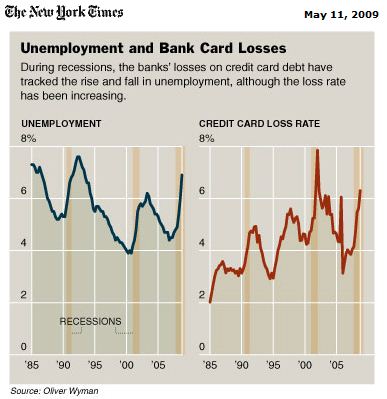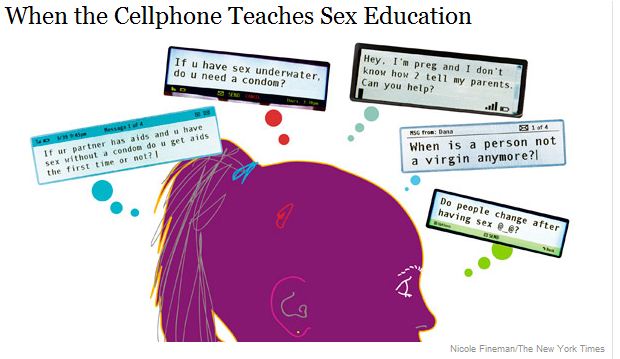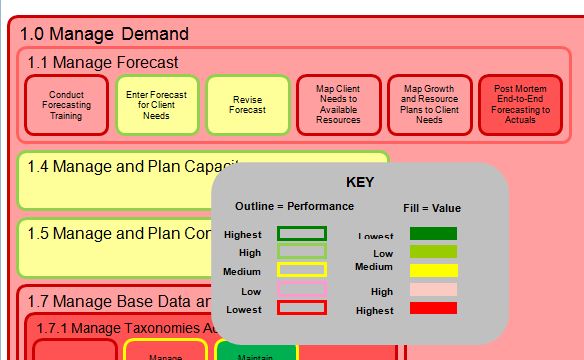The central idea of the Rethink book is the ‘how’ trap, that people get so caught up in ‘how” they do something that sometimes a really simple alternative is just impossible for them to see. The ‘why are we going this way’ conversation in driving to a favorite destination ((it rarely matters which route you take, ‘how” you get there as long as “what” you are doing, getting to the restaurant on time, is accomplished) is a good example of this totally human condition that spills into so many areas of our work and personal lives. Generally people aren’t in these ‘how” traps because of stupidity or ill will, it’s simply that they have gotten so used to their ways, or so close to it, they don’t stop and ask “why can’t we do it some other way?”
So when I saw this article in the paper today paper today, talking about the risk of $186 billion in credit card losses among banks because of increased unemployment and the fact that credit card loss rate, which used to correlate to unemployment rates, is now growing faster than unemployment, I started to scratch my head and think banks are in a big “how” trap in looking at this debt.
After realizing just how numb I have become to banking numbers these days, thinking that $186 billion is just a fraction of the $800 billion that has been set aside for banks already, the part that left me scratching my head is why they are even talking about card losses right now? Why rush to write off the debt?
I know lots of people who went to college and graduate school that received financial aid to pay the tuition, and from time to time I will hear someone say that they are still paying off their college or medical school, or law school loans. I am 43, and most of these people are around my age, which means some of these debts were incurred over 20 years ago. I know several of my friends have gone for long periods of time without work, and they have simply worked it out with their schools to pay off the debt when they can.
Credit card debt is like school debt in that it already happened. It’s not like it’s an asset like a house or a car that is appreciating or depreciating, or that occupies some land or something like that, it’s just a debt that has some sort of interest rate and payment terms hooked to it. So why do the credit card companies not just work with the card holders and work it out with people like schools do for education debt. If they change “how” they go about managing the debt, yes, it will take them longer to get the $186 billion, but they still should get most of it. Most of these people will get jobs again and they should have to pay for the food, clothing, restaurant bills, gasoline, and running shoes, and so on that make up that credit card debt.
Please, rethink managing credit card debt, so taxpayers don’t have to pick up this tab.
-Ric






